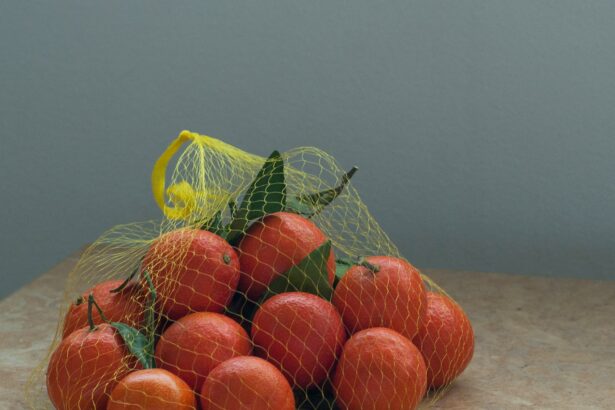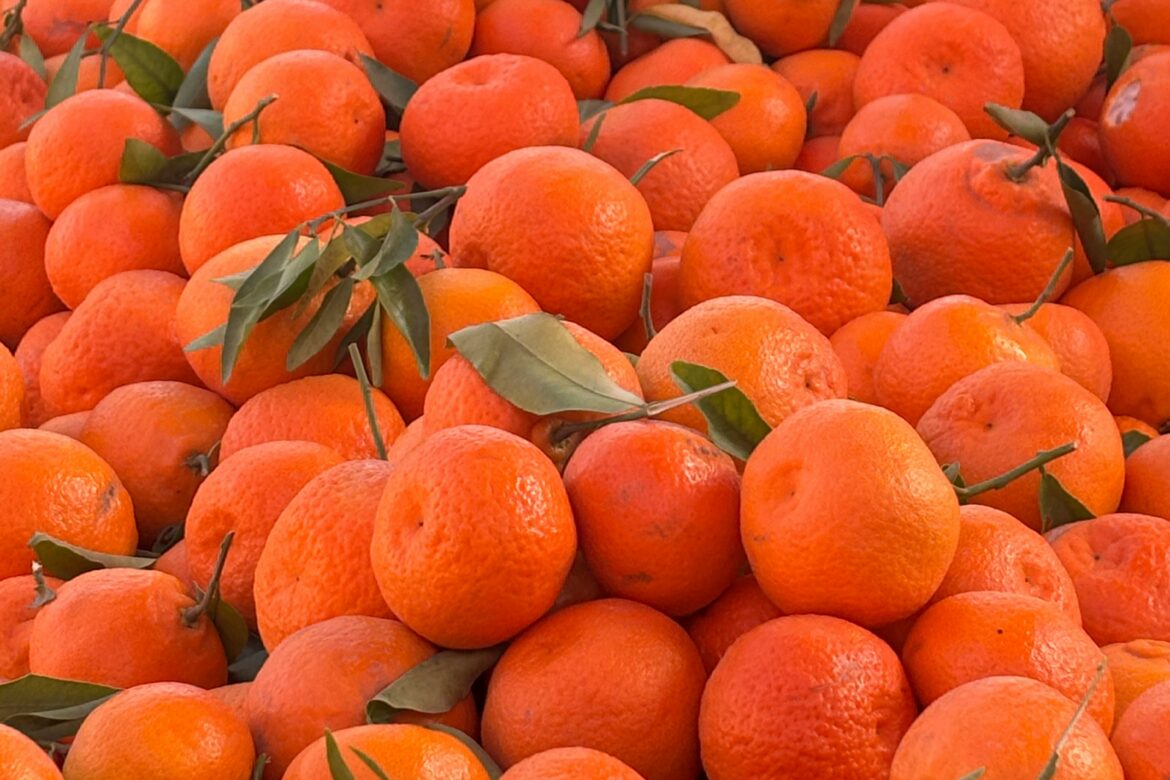Peloponnesian tangerines are celebrated across Europe for their vibrant color, easy-to-peel skin, and naturally sweet flavor. Grown in the sun-drenched orchards of Argolida and Lakonia, these tangerines benefit from the region’s ideal microclimate — mild winters, rich soil, and consistent Mediterranean sunshine. Popular varieties such as Clementines and Nova thrive here, producing fruit with high juice content and a balanced sugar-acid profile. Harvested from late autumn through early spring, Peloponnesian tangerines offer a reliable supply window that complements European market demand for fresh citrus during the colder months.
Exports
Exported in both net packs and bulk cartons, these tangerines are sorted by size and ripeness to meet strict EU standards. Their thin, aromatic peel and seedless flesh make them especially appealing to retail buyers and families seeking healthy, convenient snacks. Packing facilities in the region use modern grading and cold storage systems to preserve freshness and extend shelf life during transport. With growing interest in origin-certified produce, Peloponnesian tangerines stand out not only for their taste but also for their traceability, sustainability, and connection to Greece’s agricultural heritage.
Greek tangerines — especially those from the Peloponnese — are a standout in our citrus lineup. Their vibrant color, easy peel, and naturally sweet flavor make them a customer favorite every season. The consistency in quality, combined with reliable packaging and timely delivery, makes sourcing from Greece a smart choice for our retail chain. We’ve seen a clear uptick in repeat purchases since introducing Peloponnesian Clementines and Nova tangerines.
— Fresh Produce Buyer, Netherlands
Our Solutions
Greek tangerines, especially those from the Peloponnese, are packed with precision to preserve their freshness, aroma, and visual appeal. After careful sorting by size and ripeness, they are typically packed in net bags (1–3 kg) for retail markets or in bulk cartons (10–15 kg) for wholesale distribution. Packing facilities follow strict hygiene and quality protocols, using breathable materials and cold storage to maintain optimal conditions during transport.
Each package includes traceability labels with origin, variety, and harvest date, ensuring compliance with European standards and reinforcing the reputation of Greek citrus as a premium, reliable choice.
- Size & Ripeness Sorting: Tangerines are carefully graded to ensure uniformity and optimal flavor.
- Net Bag Packing: Common for retail markets; typically 1–3 kg mesh bags that offer visibility and ventilation.
- Bulk Carton Packing: Used for wholesale and export; sturdy 10–15 kg boxes with ventilation holes to preserve freshness.
- Gentle Handling: Thin-skinned varieties like Clementines require minimal handling to avoid bruising.
- Cold Storage Integration: Pre-shipment refrigeration extends shelf life and maintains quality during transport.
- Labeling & Traceability: Each pack includes origin, variety, harvest date, and batch codes to meet EU standards.
- Seasonal Flexibility: Packing operations adapt to early and late-season varieties for continuous supply.
Packing

Net Packing
Net packing is a highly effective and visually appealing method for presenting Peloponnesian tangerines, especially in retail environments across Europe. After being sorted by size and ripeness, the fruit is packed into breathable mesh bags—typically ranging from 1 to 3 kilograms—that allow for excellent ventilation and showcase the tangerines’ vibrant color and smooth skin. This format is ideal for varieties like Clementines and Nova, which are known for their easy peel and sweet flavor. Each net pack includes a label with origin, variety, and traceability information, ensuring compliance with EU standards while reinforcing the premium image of Greek citrus.

Carton Box
Carton box packing is a reliable and efficient method for exporting Peloponnesian tangerines, ensuring both protection and presentation during transport. After being sorted by size and ripeness, varieties like Clementines and Nova are carefully placed in corrugated cardboard boxes—typically ranging from 10 to 15 kilograms. These boxes are designed with ventilation holes to maintain airflow and prevent moisture buildup, preserving the fruit’s freshness and aroma. Each carton is labeled with essential traceability information, including origin, harvest date, and variety, meeting EU import standards and reinforcing the premium image of Greek citrus. This packing method is ideal for wholesale buyers, distributors, and retailers seeking consistent quality and shelf-ready presentation.

